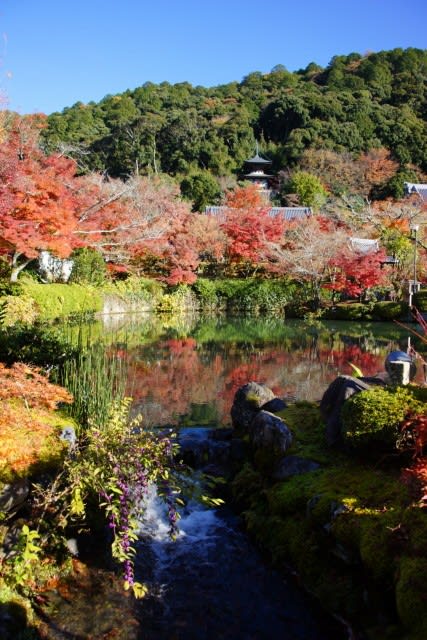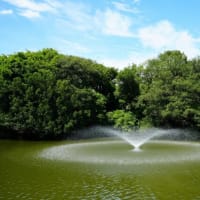Will and Hanada, two monthly magazines that went on sale today, are full of must-read articles for the Japanese people and people worldwide.
And they are only 950 yen each (tax included).
There is nothing more cost-effective than that.
Every Japanese citizen who can read should subscribe to the nearest bookstore.
Japan, the Land of History that Shook the World, a dialogue between Masayuki Takayama, the one and only journalist in the postwar world, and Masahiro Miyazaki, whose footwork rivals that of Tadao Umesao in terms of intellectual production, should be subscribed to by every Japanese citizen, regardless of age or sex, during the year-end and New Year vacations.
p32-p38
5) Ashikaga Yoshimitsu gained material gain in his diplomacy with China
Takayama
Any head of the shogunate who is in charge of finances would think of resuming trade with China, which had been interrupted by the Genko.
The third shogun of the Muromachi Shogunate, Ashikaga Yoshimitsu, attempted to do so.
It was Ashikaga-nomics, as it were.
His opponent happened to be the Yongle Emperor of the Ming Dynasty, who had usurped the imperial throne by killing his nephew, roundly criticized in China.
Fang Xiao Xin, a scholar, refused to accept the emperor's throne, and not only his family members but even his wife's family members were all killed.
At that time, Yoshimitsu sent a letter to the Yongle Emperor, proclaiming him as the legitimate emperor of China.
The Yongle Emperor probably shed tears of joy, thinking that he had received a congratulatory letter from a great man of the East who had defeated the great Yuan army.
The Ming Dynasty considered Japan to be a strong enemy.
It may have been because of the Yuan invasion. Still, there is a record of Dajong's strict orders not to show the Japanese his knowledge of gunpowder or the manufacturing method of bronze mirrors and not to sell Niter, the critical ingredient of gunpowder, to the Japanese.
On top of that, he gave them the "Golden Seal of the King of Japan," and the "Kango" trade began.
What is said about the title is a trivial matter.
Miyazaki
Now that you have mentioned the Yongle Emperor let me tell you what the Ekisei revolution in China was really about.
A fascinating book called "The Historical Transition of Chinese National Character: Despotism and the Sense of Honor" (Shukosha, 2016) was written by a Chinese of Mongolian descent named Zhang Hongjie.
According to the book, Zhu Yuanzhang, who founded the Ming Dynasty, came from a hoodlum family, and Zhu Di, who became the third Yongle Emperor, was superficially benevolent. Still, he was a rogue from the bottom of his heart.
The 11th Emperor Wu Zong, Zhu Qingshao, was an even worse rogue who did not like to read and hardly knew how to write.
The next king, King Sejong, was a perverted sexual predator who openly offered aphrodisiacs to his ministers and had sex with several dozen women in a single day.
Even the shogun, the political ruler, would not do such a thing in Japan.
In Japan, even the shogun, the political ruler, would never do such a thing, much less the emperor above him.
In other words, Japan is a country of emperors, and there will never be such an authority figure.
Such a foolish person would never become the supreme authority of the country.
So in a country where such a person becomes the supreme political leader, it will also transform the people.
In this same book, the translator, Kazumi Kobayashi, introduces Lu Xun's words.
According to him, "Subjects under tyrants are usually even more violent than tyrants," and "A tyrant's subjects wish that it could wield that tyranny only over the heads of others, and he is amused by watching it, entertaining "cruelty," "suffering of others, and "the suffering of others" is his prize and comfort. The only thing he cares about is that he is the only one who can get away with it.
It is all the same as how it is in China today.
It is how the Ekisei revolution is unfolding its tragic history.
(6) Japan developed its own nitrites, which were kept out of the country by Zhu Yuanzhang
Takayama
I have already mentioned that the Ming Dynasty hid the fact that it produced nitrites, but Japan did not learn about it until 200 years after the Yongle Emperor's reign.
Guns were introduced to Tanegashima.
Japan had an abundance of sulfur and charcoal, the raw materials for gunpowder, but no nitrites.
When they asked the Portuguese for nitrites, they were told it would take 50 women and one barrel of nitrites, which made them angry.
So, for the first time, Japan asked the Ming Dynasty if they had it.
However, Zhu Yuanzhang, the first emperor of the Ming Dynasty, kept it a military secret.
In particular, he ordered Japan to ban it because it was an enemy force.
Zhu Yuanzhang also wrote, "You must never show bronze firearms to anyone."
The Ming Dynasty was founded in 1366, but by that time, Japan was already regarded as an enemy nation, and it issued the order never to sell nitrites to the Japanese.
The Ming Dynasty bought sulfur from Japan, but they never sold nitrites to Japan.
That order was kept alive for a long time.
Yi Sun-sin of the Yi Dynasty had a firearm with a share from Ming Dynasty.
During the Bunroku and Keicho battles of Toyotomi Hideyoshi, he equipped his turtle ship with them and bombarded the Japanese ships.
Hideyoshi's navy suffered one defeat.
What I mean by this is that China and Korea were colluding and regarded Japan as an enemy.
For the second time, China and Korea colluded against Japan in the Genko Incident and the Bunroku and Keicho Incidents.
Japan was also aware of this, so they kept their diplomacy free of any illusions of friendship between Japan and China even in the Edo period.
Miyazaki
When China imposed an embargo on rare metals and rare piles of earth, and when China said it would stop supplying them to Japan, Japan quickly diversified its supply sources, and now China is asking us to buy them by dumping them.
So, what did you do in the end in the case of nitre?
Takayama
Japan decided to become self-sufficient.
Japan made it in various places, such as Gokayama in Toyama and Ishiyama Honganji Temple.
It initially made Nitrites from the accumulated droppings of birds.
Since the floor under the hearth is always dry, various kinds of garbage were added and buried together.
After five years, potassium nitrate and nitrites are produced.
Miyazaki
In the past, a Japanese chief named Nakamura lived on Nauru, where bird droppings and phosphate ore were everywhere.
Sumitomo Corporation had its eye on the area, and Sumitomo had a monopoly there for a while.
Takayama
Now it is all taken up, and Nauru seems to be sinking into the sea.
When China imposed an embargo on rare metals, Japan collected electronic parts and reused the rare metals used in them.
It recovered the rare metals in the form of so-called urban mines.
So, when Portugal and China could not do it, Japan had the wisdom to make it by itself.
Through nitrites, the Japanese were aware that China and North Korea were allied enemies, and they kept their relations with them to a minimum.
In short, it can say that diplomacy, or how to interact with the country, was well-developed.
Miyazaki
Yes, that is true.
Another thing is that Japan had accumulated valuable experience in the warring states period and knew how to get information, use the power of the other side, and wage war.
That gene was destroyed during the long period of peace in Edo (now Tokyo), and there was no way to recover it until the end of the Edo period.
Takayama
But he had a great thirst for knowledge.
When the British ship Phaeton made a raid on Nagasaki port in 1808, the Japanese immediately created an English dictionary.
It was the "Angariagorintaisei" (1814).
Japanese people don't run away because they are afraid, but they actively try to know others.
It is how we learned that those who use English are brutal and dangerous.
Then Perry came, and it was still dangerous (laughs).

















